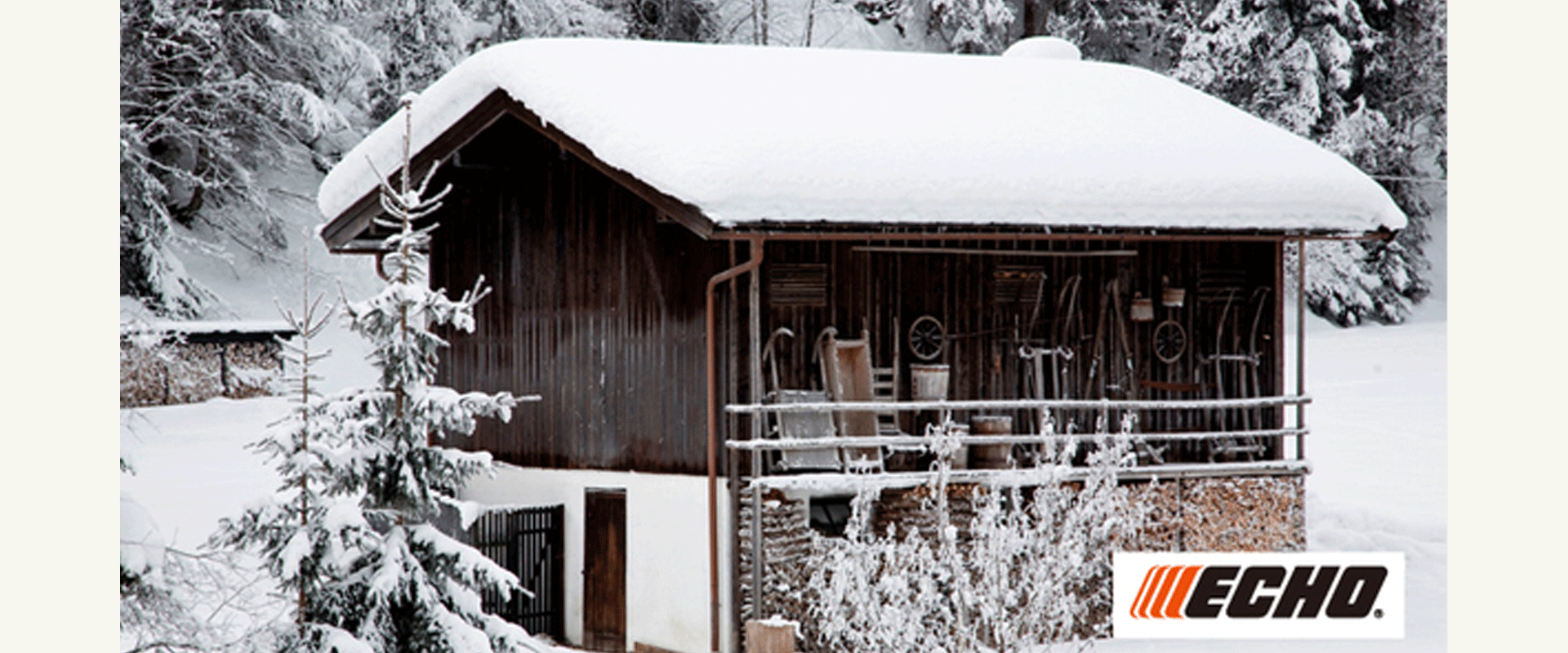
Prepare Your Power Equipment for Winter
The winter season is rapidly approaching. Pretty soon, many of us will receive a lengthy reprieve from mowing, trimming, and landscaping lawns and gardens as the cold weather causes a sort of “plant-hibernation.” While you may not be using much of your outdoor power equipment for the next couple of months, if you plan on just tossing them in a shed without any sort of winterization measures, you’re taking a big risk with the overall performance health of your landscaping tools. To keep your equipment working at peak performance and preserve its quality for years to come, follow these winterizing steps.
In this post, we’ll focus on proper winterization and storage for a trimmer, blower, and edger- three very crucial lawn care tools that can last for years to come with proper maintenance.
Empty the Tanks
Before you can begin the proper steps of cleaning, polishing, or prepping the tools for storage, you will first want to empty the tanks of their fuel. You can do this by using each piece one final time to ensure the fuel is consumed or by emptying the fuel from the tank into an appropriate disposal tank. Emptying the fuel first will allow you to handle the equipment more easily without worrying about spillage if you need to turn something on its side to clean out the underside or the tools. Run each piece of equipment until it quits, ensuring there is no more fuel in the lines.
Disconnect Spark Plugs
As an added safety measure, be sure to disconnect applicable spark plugs before beginning any maintenance. This will ensure they cannot start up. You will also want to inspect each plug, making sure corrosion has not occurred and to properly clean or replace each.
Cleaning
Leading into winter, these three tools have more than likely had long seasons of use. And after months of hard work, these tools are probably loaded with more dirt, grass, and debris than you realize. Cleaning each can be the most time consuming but will also keep these tools running like new.
First remove major clumps or visible debris from the blades, guards, and exteriors. For your edger, remove the blade to complete remove trapped grass or debris. This will also allow you to clean, sharpen, and oil the blade. A wire brush will make short work out of clearing the months’ worth of dirt and grass. Similarly, clean out your trimmer by removing any caked on debris under the shield. Most blowers can be wiped down with a very lightly dampened cloth as they don’t usually have the same debris issues mowers or trimmers have.
Filter Cleaning
Your air filter has likely been working overtime if this is the first cleaning session you’ve given your tools. Be sure to clean these out and keep an eye out for any holes, tears, or signs of wear around the seals. Keeping your filters clean will keep each tool from working too hard. Use an air hose being careful not to clean too hard and puncture filters or replace as needed.
Storage
Finally, consider the space you keep these tools in. How much moisture gets into this space? Are other metal tools or equipment consistently rusting in there? Can you afford the space in a better sealed/ventilated garage to store your power equipment? While you may not want to pour too much money into fixing up a yard equipment shed, look for anything you can do easily or cheaply to seal the shed, prevent moisture, or increase ventilation.
And just like that, your trimmer, edger, and blowers are winterized. At the start of spring, you’ll be ready to put in some yard work hours and your tools will function like new. Just be sure to give each piece of equipment ample fuel and warm up time after sitting all winter.
Sources:
www.thisoldhouse.com/how-to/how-to-store-your-lawn-mower-cold-season
